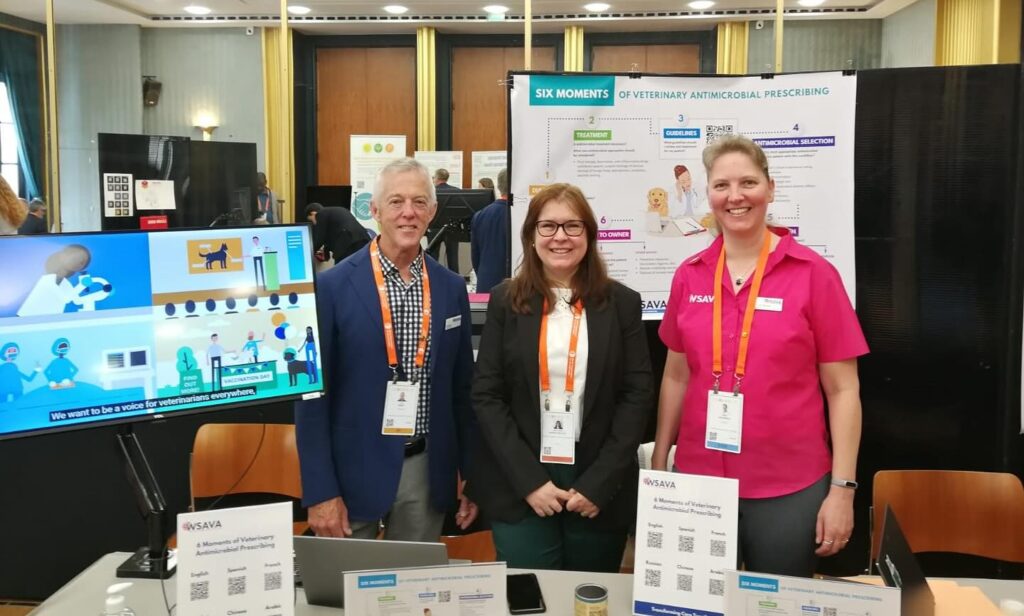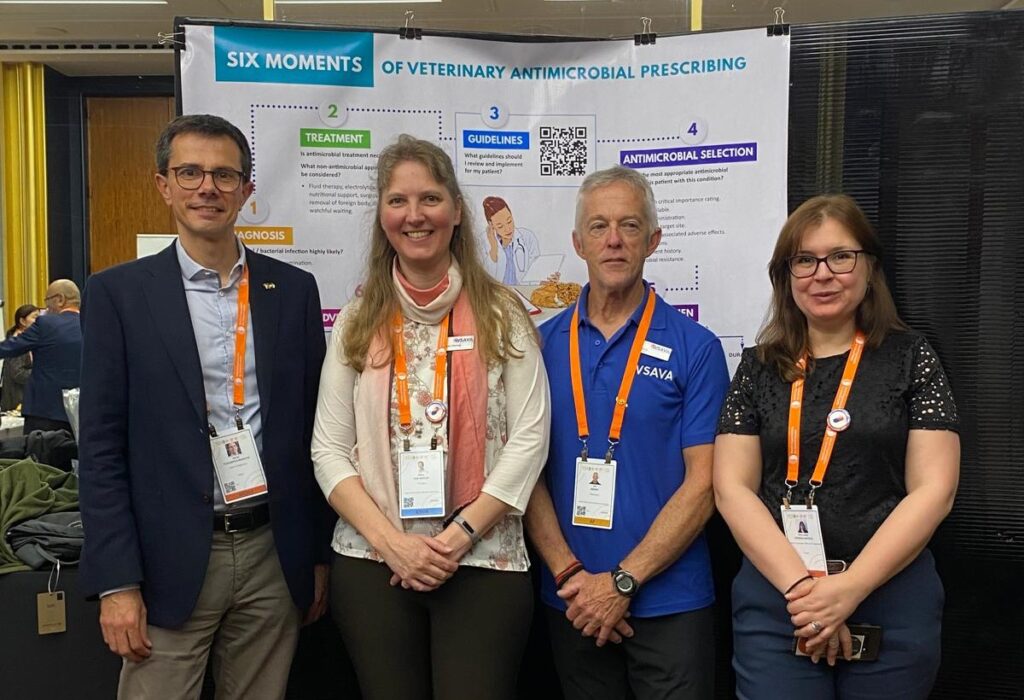Companion animals play a pivotal role in the One Health approach, particularly concerning AMR. As valued family members of households worldwide, they share living spaces and close interactions with humans, facilitating the exchange of pathogens, including antimicrobial-resistant bacteria. Recognizing this connection is vital for effectively addressing AMR, as the transfer of resistant pathogens between humans and animals (and vice-versa), can pose significant animal and public health risks. Moreover, use of antimicrobials in companion animals , can also contribute to the emergence and spread of resistant bacterial strains between animals, humans and the environment.
Dr Ellen van Nierop, WSAVA President, highlighted: “While the general concept of One Health is well understood in relation to the interactions between food-producing animals, wildlife, the environment and human health, the growing significance of the human-companion animal bond in One Health is not yet fully appreciated. Therefore, we are very happy to see companion animals being included in WOAH’s AMR standards. This inclusion reinforces not only WSAVA’s commitment to raising awareness and understanding the increasing importance of companion animals in the One Health approach, but also our commitment to working together with WOAH to reach this goal”
According to WOAH, the update in their standards was driven by the increase in the number of companion animals worldwide and the shift in the culture of pet ownership in emerging economies which has led to closer interactions between companion animals and humans. The organisation not only encouraged its Members to promote the responsible use of antimicrobials in companion animals but also highlighted the importance of working together with WSAVA to “increase awareness around risks and good practices among veterinarians in practice as well as pet owners”.
Dr. Javier Yugueros-Marcos, Head of Department Antimicrobial Resistance & Veterinary Products at WOAH, commented “Development and spread of antimicrobial resistance demands bold and collaborative actions. As the global authority on animal health, it is WOAH’s responsibility to set international standards aligned with the latest scientific information. The unanimous adoption of this updated standard by our 183 Members is a major milestone in providing reference and useful guidance to effectively contain AMR, and preserve the efficiency of antimicrobials, in all animal species, as well as in humans, for generations to come”.
WSAVA has a long-standing collaboration with WOAH, which was formally acknowledged with the signing of a memorandum of understanding in 2011. This agreement recognizes among important issues, the importance of companion animals in the global One Health approach, and the significance of societal aspects of the human-companion animal bond.
We look forward to continuing working with WOAH in preventing AMR!

Useful links:

